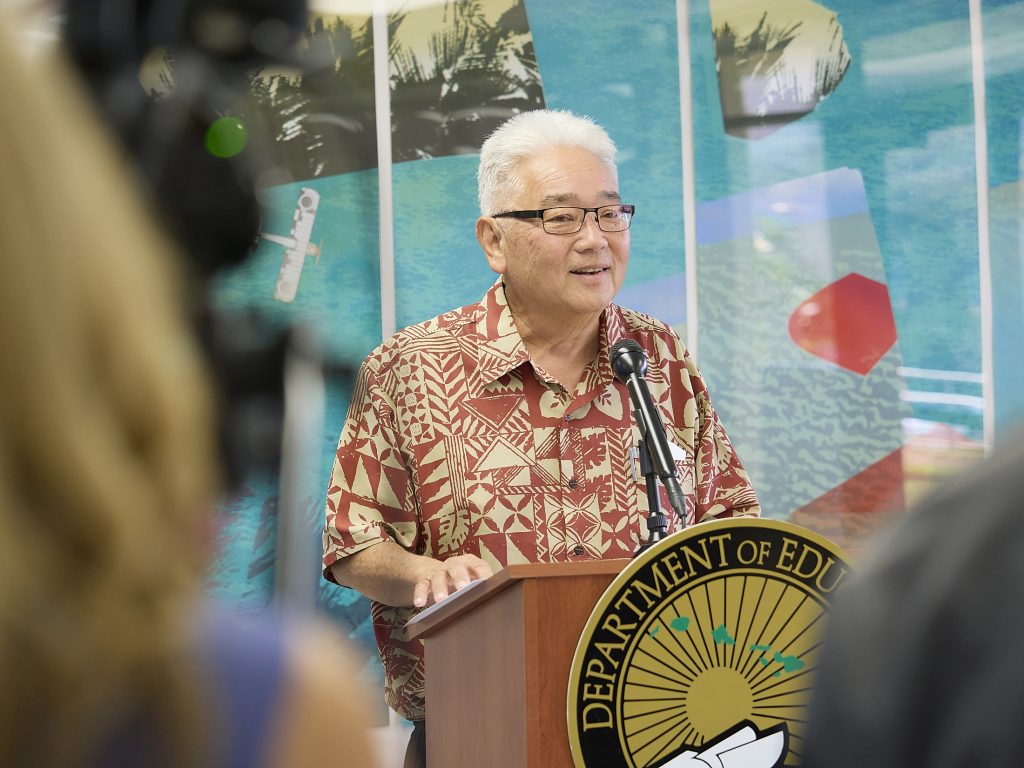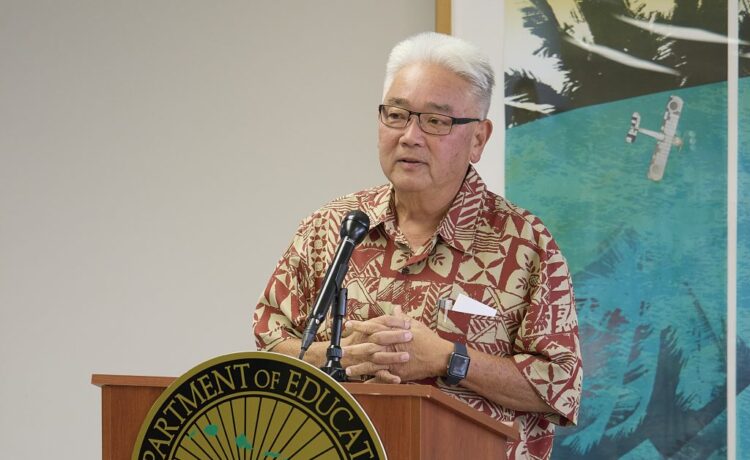The top administrator in charge of the Department of Education’s facilities has left his post, a spokeswoman said Thursday.
Randall Tanaka’s departure follows the department’s controversial plan to lapse $465 million in capital improvement projects that would have supported improvements ranging from new classrooms to play structures on school campuses.
DOE spokeswoman Nanea Kalani confirmed that Tanaka was out as the assistant superintendent of the office of facilities and operations as of Wednesday, but she said it was a personnel issue and declined to provide more details or say if he was fired or resigned.
However, the facilities and operations branch held an internal meeting on Thursday morning during which the department announced that Tanaka had been terminated from his position, according to a person who attended the meeting. The person provided the information on condition of anonymity.


Tanaka was appointed as assistant superintendent for the office in January 2020 with the task of overseeing construction and maintenance of school facilities and operations of food services, transportation and security. His salary range fell between $160,000 to $190,000 in fiscal year 2024.
The DOE’s decision to surrender funding for more than 150 public school construction projects was revealed in a Nov. 29 memo from House Speaker Scott Saiki. The memo to House lawmakers referred questions to Tanaka.
The state Department of Budget and Finance issued a written statement Tuesday explaining that “DOE approached B&F several months ago and flagged that close to $900M in CIP funds were scheduled to lapse on June 30, 2024.”
“The DOE has had two or three years to encumber the money but has not done so,” it said. “Discussions were ongoing between B&F and DOE for several months and the lapse number that was finally decided between B&F and DOE was $465M.”
Amid criticism of the plans to lapse the funding that had been earmarked by lawmakers for public school improvement projects across the state, the House scheduled then abruptly canceled a hearing on the topic on Wednesday.
Saiki, who criticized the plan, declined to comment when asked about Tanaka’s departure.
About 20% of the 257 public schools in the islands are more than a century old, and the DOE has faced criticism for backlogs in repair and maintenance of campus facilities, including school fire alarms. In response to a House report raising concerns around outdated fire alarms and sprinklers in Hawaii schools, Tanaka said last month that the department was prioritizing the issue but lacked a timeline for fixing broken alarm systems.
Tanaka also proved a divisive character in the drive to boost DOE spending on local food for school meals, failing to make substantial headway toward the goal of spending 30% of the food budget on local produce by 2030.
Nor did DOE provide a detailed plan to achieve that goal, mandated under Act 175, under his leadership.
Tanaka hedged Act 175’s success on a centralized kitchen model, one intertwined with Sen. Donovan Dela Cruz’s plans for a Central Oahu Food Hub, which agitated organizations dedicated to increasing local food consumption in schools.
Rep. Amy Perruso said in February the centralized model – signed off on by Gov. Josh Green this year – was an “idea of a few people in positions of power” and lacked any substantial justification. She also declined to comment on Tanaka’s departure.
In addition to his current role as deputy superintendent of operations, Curt Otaguro will temporarily take on Tanaka’s responsibilities, Kalani said. The department does not have a timeline for hiring a permanent replacement for Tanaka.
Before joining the department, Tanaka served as deputy director of the Department of Business, Economic Development and Tourism.
Civil Beat reporters Thomas Heaton and Kevin Dayton contributed to this report.
Civil Beat’s education reporting is supported by a grant from Chamberlin Family Philanthropy.
Read the memo about the proposal to lapse funds here:
















